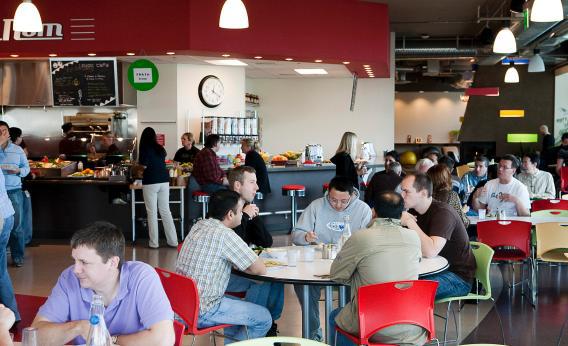Just in time for the national holiday, the Verge today has a story about how immigration reform could harm rank-and-file American information technology workers. “Is Silicon Valley’s immigration agenda gutting the tech industry’s middle class?”, the tech blog wants to know. Subtract “Silicon Valley” and “tech industry” from the headline and you have the age-old canard about furriners stealing Amurricans’ rightful jobs.
In this case, the furriners are not migrant farm workers but highly skilled tech workers entering the country on H-1B visas. The immigration bill that recently passed the Senate would expand the national cap on these visas from 85,000 to 180,000—or rather, “all the way up to 180,000,” as the Verge’s Ben Popper objectively phrases it. Silicon Valley companies are all for the move, since it would bring in tens of thousands of ace engineers at a time when demand for top talent far exceeds the domestic supply.
But it doesn’t sit well with some of Silicon Valley’s rank and file, who happen to like holding a monopoly on IT jobs in the world’s tech capital. They have all sorts of justifications for their anti-immigration stance, but the most galling is when they put it in terms of their concern for the plight of the poor, exploited foreign workers who are taking their jobs, as they do throughout the Verge’s piece.
Oh yes, those poor, exploited, highly skilled foreign workers. Popper did not go so far as to actually talk to any of these foreign workers, as far as I can tell. Perhaps they were unable to return his calls because they were locked in Google’s secret “foreigners-only” basement sweatshop. But he did repeatedly quote one Kim Berry, a coder for the California Department of Health and spokesman for something called the Programmer’s Guild, who compares H-1B tech workers’ status to “indentured servitude.”
My favorite quote from Berry, though, is the one where he unintentionally lays bare the hypocrisy at the root of his own argument: “American workers are being passed over in favor of foreign workers who make far less money, and politicians seem oblivious to our plight.” That’s right: “our plight.” Not the plight of the foreign workers who make far less money. Berry’s real concern is the plight of the American IT workers who make far more money. Won’t anyone think of them?
As twisted as that is, it might at least make some logical sense if it were true that foreign tech workers were being underpaid. In fact, as Popper duly notes, a Brookings study found that H1-B workers in the tech industry make 26 percent more than their American counterparts.
At the same time, it is true that some American graduates in science and engineering are being passed over for jobs. But it isn’t because there are foreigners will do those jobs for less money. It’s because there are foreigners who will do them better. That’s why it isn’t the top American programmers who are threatened by the competition. As an Andreessen Horowitz recruiter points out in Popper’s story, it’s the ones who don’t have the skills that today’s tech companies need.
Historically, even the country’s least-skilled IT workers could count on cushy jobs with good pay. That isn’t because their work is inherently more valuable than that of, say, teachers. It’s because they didn’t have much competition. That’s changing, and they’re upset about it, and that’s understandable. But they should recognize that limiting H-1B visas will only hurt Silicon Valley in the long run. And they should stop pretending that they’re serving anyone but themselves by fighting to keep foreigners out.
